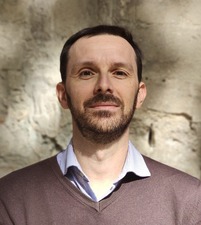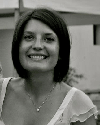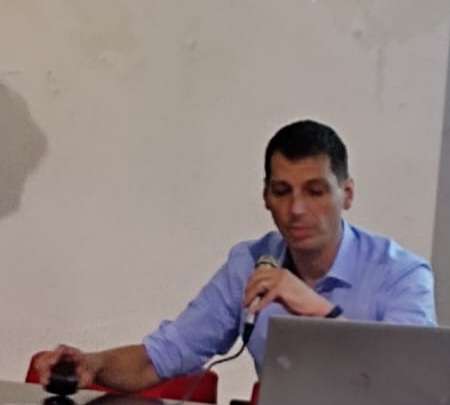Studying at the University of Verona
Here you can find information on the organisational aspects of the Programme, lecture timetables, learning activities and useful contact details for your time at the University, from enrolment to graduation.
Academic calendar
The academic calendar shows the deadlines and scheduled events that are relevant to students, teaching and technical-administrative staff of the University. Public holidays and University closures are also indicated. The academic year normally begins on 1 October each year and ends on 30 September of the following year.
Course calendar
The Academic Calendar sets out the degree programme lecture and exam timetables, as well as the relevant university closure dates..
| Period | From | To |
|---|---|---|
| CuCi 1 A | Sep 25, 2023 | Nov 4, 2023 |
| CuCi 1 B | Nov 13, 2023 | Dec 22, 2023 |
| CuCi 2 A | Feb 19, 2024 | Mar 29, 2024 |
| CuCi 2 B | Apr 9, 2024 | May 31, 2024 |
| Session | From | To |
|---|---|---|
| Sessione invernale | Jan 8, 2024 | Feb 17, 2024 |
| Sessione estiva | Jun 3, 2024 | Jul 26, 2024 |
| Sessione autunnale | Aug 26, 2024 | Sep 21, 2024 |
| Session | From | To |
|---|---|---|
| Sessione straordinaria (a.a. 2022/23) | Apr 2, 2024 | Apr 8, 2024 |
| Sessione estiva | Jul 8, 2024 | Jul 13, 2024 |
| Sessione autunnale | Nov 4, 2024 | Nov 9, 2024 |
| Period | From | To |
|---|---|---|
| Festa di Ognissanti | Nov 1, 2023 | Nov 1, 2023 |
| Festa dell'Immacolata | Dec 8, 2023 | Dec 8, 2023 |
| Vacanze di Natale | Dec 24, 2023 | Jan 7, 2024 |
| Vacanze di Pasqua | Mar 29, 2024 | Apr 1, 2024 |
| Festa della Liberazione | Apr 25, 2024 | Apr 25, 2024 |
| Festa del Lavoro | May 1, 2024 | May 1, 2024 |
| Festa del Santo Patrono | May 21, 2024 | May 21, 2024 |
| Vacanze estive | Aug 12, 2024 | Aug 17, 2024 |
Exam calendar
Exam dates and rounds are managed by the relevant Culture and Civilisation Teaching and Student Services Unit.
To view all the exam sessions available, please use the Exam dashboard on ESSE3.
If you forgot your login details or have problems logging in, please contact the relevant IT HelpDesk, or check the login details recovery web page.
Should you have any doubts or questions, please check the Enrollment FAQs
Academic staff
 luca.bochicchio@univr.it
luca.bochicchio@univr.it
 monica.cristini@univr.it
monica.cristini@univr.it
 dario.donetti@univr.it
dario.donetti@univr.it
 elisa.lerco@univr.it
elisa.lerco@univr.it
 pieralberto.porcedducilione@univr.it; pierre_pordd@yahoo.it
pieralberto.porcedducilione@univr.it; pierre_pordd@yahoo.it
 045 8028732
045 8028732
 alberto.scandola@univr.it
alberto.scandola@univr.it
Study Plan
The Study Plan includes all modules, teaching and learning activities that each student will need to undertake during their time at the University.
Please select your Study Plan based on your enrollment year.
1° Year
| Modules | Credits | TAF | SSD |
|---|
2° Year It will be activated in the A.Y. 2024/2025
| Modules | Credits | TAF | SSD |
|---|
| Modules | Credits | TAF | SSD |
|---|
| Modules | Credits | TAF | SSD |
|---|
| Modules | Credits | TAF | SSD |
|---|
Legend | Type of training activity (TTA)
TAF (Type of Educational Activity) All courses and activities are classified into different types of educational activities, indicated by a letter.
Type D and Type F activities
SOFT SKILLS
Find out more about the Soft Skills courses for Univr students provided by the University's Teaching and Learning Centre: https://talc.univr.it/it/competenze-trasversali
CONTAMINATION LAB
The Contamination Lab Verona (CLab Verona) is an experiential course with modules on innovation and enterprise culture that offers the opportunity to work in teams with students from all areas to solve challenges set by companies and organisations.
Upon completion of a CLab, students will be entitled to receive 6 CFU (D- or F-type credits).
Find out more: https://www.univr.it/clabverona
PLEASE NOTE: In order to be admitted to any teaching activities, including those of your choice, you must be enrolled in the academic year in which the activities in question are offered. Students who are about to graduate in the December and April sessions are therefore advised NOT to undertake extracurricular activities in the new academic year in which they are not enrolled, as these graduation sessions are valid for students enrolled in the previous academic year. Therefore, students who undertake an activity in an academic year in which they are not enrolled will not be granted CFU credits.
| years | Modules | TAF | Teacher |
|---|---|---|---|
| 1° 2° | FAI Activities | F |
Edoardo Bianchi
(Coordinator)
|
| 1° 2° | Conference Civici Museum Verona | F |
Alessandra Zamperini
(Coordinator)
|
| 1° 2° | Course of history and art of the C.T.G. | F |
Marco Stoffella
(Coordinator)
|
| 1° 2° | GIS analysis for archaeology | F |
Filippo Carraro
(Coordinator)
|
| 1° 2° | Worlds of Fashion: Themes and Actors | F |
Alessandra Zamperini
(Coordinator)
|
| 1° 2° | San Giorgio di Valpolicella. New studies on the pieve | F |
Fabio Coden
(Coordinator)
|
| 1° 2° | University and DSA - Methods and strategies for tackling study and university studies | F |
Chiara Melloni
(Coordinator)
|
| years | Modules | TAF | Teacher |
|---|---|---|---|
| 1° 2° | FAI Activities | F |
Edoardo Bianchi
(Coordinator)
|
| 1° 2° | Series of lectures: Maria Callas: musica, media, moda, arte | F |
Vincenzo Borghetti
(Coordinator)
|
| 1° 2° | Conference Civici Museum Verona | F |
Alessandra Zamperini
(Coordinator)
|
| 1° 2° | Conference The management of local authority museums: critical issues, innovative models, development prospects | F |
Dario Donetti
(Coordinator)
|
| 1° 2° | Course of history and art of the C.T.G. | F |
Marco Stoffella
(Coordinator)
|
| 1° 2° | GIS analysis for archaeology | F |
Filippo Carraro
(Coordinator)
|
| 1° 2° | Worlds of Fashion: Themes and Actors | F |
Alessandra Zamperini
(Coordinator)
|
| 1° 2° | San Giorgio di Valpolicella. New studies on the pieve | F |
Fabio Coden
(Coordinator)
|
| 1° 2° | Stories and protagonists in Palazzo Miniscalchi | F |
Alessandra Zamperini
(Coordinator)
|
| 1° 2° | University and DSA - Methods and strategies for tackling study and university studies | F |
Chiara Melloni
(Coordinator)
|
| years | Modules | TAF | Teacher | |
|---|---|---|---|---|
| 1° | Sigecweb computer system introduction course | F |
Ada Gabucci
(Coordinator)
|
|
| 1° 2° | Building archaeology and mapping stratigraphy | F |
Elisa Lerco
(Coordinator)
|
|
| 1° 2° | FAI Activities | F |
Edoardo Bianchi
(Coordinator)
|
|
| 1° 2° | Conference Civici Museum Verona | F |
Alessandra Zamperini
(Coordinator)
|
|
| 1° 2° | Course of history and art of the C.T.G. | F |
Marco Stoffella
(Coordinator)
|
|
| 1° 2° | San Giorgio di Valpolicella. New studies on the pieve | F |
Fabio Coden
(Coordinator)
|
|
| 1° 2° | University and DSA - Methods and strategies for tackling study and university studies | F |
Chiara Melloni
(Coordinator)
|
|
| 1° 2° | Illustrated Verona: the future of a cultural heritage. Balance sheets, perspectives and role of studies on the territory | F |
Alessandra Zamperini
(Coordinator)
|
|
| years | Modules | TAF | Teacher | |
|---|---|---|---|---|
| 1° | Sigecweb computer system introduction course | F |
Ada Gabucci
(Coordinator)
|
|
| 1° 2° | Building archaeology and mapping stratigraphy | F |
Elisa Lerco
(Coordinator)
|
|
| 1° 2° | FAI Activities | F |
Edoardo Bianchi
(Coordinator)
|
|
| 1° 2° | Conference Civici Museum Verona | F |
Alessandra Zamperini
(Coordinator)
|
|
| 1° 2° | Course of history and art of the C.T.G. | F |
Marco Stoffella
(Coordinator)
|
|
| 1° 2° | San Giorgio di Valpolicella. New studies on the pieve | F |
Fabio Coden
(Coordinator)
|
|
| 1° 2° | University and DSA - Methods and strategies for tackling study and university studies | F |
Chiara Melloni
(Coordinator)
|
|
| 1° 2° | Illustrated Verona: the future of a cultural heritage. Balance sheets, perspectives and role of studies on the territory | F |
Alessandra Zamperini
(Coordinator)
|
|
Cultural heritage law (2023/2024)
Teaching code
4S010517
Teacher
Coordinator
Credits
6
Language
Italian
Scientific Disciplinary Sector (SSD)
IUS/10 - ADMINISTRATIVE LAW
Period
CuCi 1 A, CuCi 1 B
Courses Single
Authorized
Learning objectives
To deepen the basic notions of cultural property law, in particular in the sectors, operationally of primary interest, of the international circulation of cultural property and of offences sanctioned in administrative and criminal proceedings.
Prerequisites and basic notions
Nobody
Program
PART ONE - FOUNDATIONAL CONCEPTS
I The elements of the legal system
II Rule production.
III The public administrations
PART TWO - THE LAW ON CULTURAL ASSETS
MODULE I - PROTECTION
I The sources of law on the protection of cultural assets
II The protection of cultural assets: concept
III The administrative function of protecting cultural assets
IV The concept of cultural asset
V Identifying cultural assets
VI Protecting cultural assets: general framework.
VII Direct protection for cultural assets
VIII Indirect protection for cultural assets
IX Conservation of cultural assets
X Sanctions
XI Maintaining the legal integrity of cultural assets: general framework
XIII The sale of cultural assets
XIII Declarations
XIV Right of pre-emption: reference
XV Maintaining the substantive integrity of cultural assets: general framework
XVI Removal of cultural assets from the country and courses of cultural interest
XVII The movement of cultural assets within and outside the European Union.
XVIII Tensions between the need to protect cultural assets and private property rights
MODULE I - UTILISATION
I The sources of law on the utilisation of cultural assets
II Public administrations charged with the administrative function of utilising cultural assets
III Concept of utilisation
IV The utilisation of assets owned by public bodies
V The utilisation of documents in archives
VI The utilisation of private cultural assets
VII Individual usage of cultural assets
MODULE III - EXPLOITATION
I The sources of law on the exploitation of cultural assets
II The exploitation of cultural assets: concept
III The administrative function of exploiting cultural assets
IV Exploitation for the purpose of improving the conditions applicable to the utilisation of cultural assets
V Exploitation for the purpose of raising awareness of cultural assets
VI Exploitation for the purpose of supporting conservation initiatives
VII Sponsorship
VIII Exploitation agreements concluded with banks
MODULE IV - COMPULSORY PURCHASES
I Expropriation on public interest grounds related to cultural assets [espropriazione per fini strumentali]
II Right of pre-emption
III Compulsory purchase
IV Expropriation
MODULE V - THE RELATIONSHIP BETWEEN PROTECTION ON THE ONE HAND AND UTILISATION AND EXPLOITATION ON THE OTHER HAND
Bibliography
Didactic methods
Frontal lessons
Teaching material sent, upon request, via e-mail to attending students.
The lectures are recorded and are available on the moodle teaching platform.
The teaching method is consistent with the educational objectives of the teaching and, more generally, of the master's degree course in History of the Arts. Consequently, on the one hand, it outlines the fundamental legal institutions of the subject, highlighting the profound connections between them existing and highlighting the impact of the historical-artistic discipline on their formation and evolution; on the other hand, it provides the essential logical and legal tools for the solution of concrete cases.
Learning assessment procedures
The examination involves an oral discussion.
ATTENDING STUDENTS
The examination will cover the following issues:
1) lectures
2) the seminars ;
3) the textbook “Diritto dei beni culturali e del paesaggio” [“The law on cultural and landscape assets”], edited by M. A. Cabiddu and N. Grasso, Giappichelli, 2021, ONLY section II of chapter V to section III.B. of chapter V and chapter IX.
N.b. Attending students mean those who have followed lessons either in person or alternatively using video recording equipment.
NON-ATTENDING STUDENTS.
The examination will cover the following issues:
1) the textbook “Beni culturali e paesaggistici” [“Cultural and landscape assets”], A. Crosetti and D. Vaiano, Giappichelli, 2018 ONLY section 1 of chapter 1 of part I;
AND
2) the entire textbook “Diritto dei beni culturali e del paesaggio” [“The law on cultural and landscape assets”], edited by M. A. Cabiddu and N. Grasso, Giappichelli, 2021, EXCEPT chapters XI - XII and section 9 of chapter XIII.
Incoming ERASMUS students (i.e. students registered on study programmes at European Union universities not based in Italy) are invited to contact the teacher responsible at the start of the course in order to be set a specific topic to be analysed in greater depth in a course essay. That essay will be discussed orally during the examination diets scheduled according to the academic calendar.
Evaluation criteria
- knowledge and understanding of the subject being examined;
- ability to frame juridical institutions diachronically in the perspective of the evolution of historical-artistic disciplines;
- ability to present knowledge in a clear and orderly manner as well as with correct technical vocabulary;
- ability to solve elementary concrete cases by (first) the identification of the essential elements, (then) the identification - on the basis of reliable argumentative paths - of the rules to be applied and (lastly) the application - by virtue of reasoning immune from logical flaws - of the aforementioned rules to the specific cases.
Criteria for the composition of the final grade
Balanced weighting between the evaluation criteria
Exam language
Italiano
Career prospects
Module/Programme news
News for students
There you will find information, resources and services useful during your time at the University (Student’s exam record, your study plan on ESSE3, Distance Learning courses, university email account, office forms, administrative procedures, etc.). You can log into MyUnivr with your GIA login details: only in this way will you be able to receive notification of all the notices from your teachers and your secretariat via email and soon also via the Univr app.
Double degree
The University of Verona, through a network of agreements with foreign universities, offers international courses that enable students to gain a Double/Joint degree at the time of graduation. Indeed, students enrolled in a Double/Joint degree programme will be able to obtain both the degree of the University of Verona and the degree issued by the Partner University abroad - where they are expected to attend part of the programme -, in the time it normally takes to gain a common Master’s degree. The institutions concerned shall ensure that both degrees are recognised in the two countries.
Places on these programmes are limited, and admissions and any applicable grants are subject to applicants being selected in a specific Call for applications.
The latest Call for applications for Double/Joint Degrees at the University of Verona is available now!
Student login and resources
Prova finale
Alla prova finale per il conseguimento della laurea magistrale in Storia delle arti sono assegnati 24 cfu. La prova finale consiste nella preparazione e nella discussione di una tesi di laurea magistrale, di non meno di 120 pagine scritte, elaborata in modo originale dallo studente sotto la guida di un docente relatore; è prevista la figura del correlatore. L'argomento della prova finale deve riguardare uno degli insegnamenti del piano di studi. I laureati devono saper dimostrare con il lavoro di tesi di aver applicato le loro conoscenze, di possedere capacità di comprensione e abilità nella risoluzione di problemi e nell'affrontare tematiche nuove in modo autonomo e in un contesto di ricerca e di progettazione originale. La discussione della prova finale ha luogo davanti a una Commissione composta secondo le relative norme del Regolamento didattico di Ateneo. Per la prova finale è previsto un massimo di 7 punti. Per l'attribuzione del punteggio la commissione si attiene ai seguenti criteri: 1) originalità dell'elaborato; 2) efficacia e coerenza nelle argomentazioni; 3) qualità della scrittura; 4) capacità dello studente di illustrare e discutere adeguatamente il suo lavoro davanti alla commissione. La votazione è espressa in centodecimi, a cui la Commissione può aggiungere, in casi di eccellenza, la distinzione della lode.
Adempimenti amministrativi e scadenze domanda di laurea
Calendari discussione e proclamazione di laurea



































